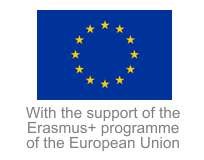 The study provides an overview of the challenges, conditions and limitations which may be considered as obstacles to the modernisation of higher education. In particular, the purpose is to investigate to what extent some unfavourable conditions, such as inadequate recruitment procedures and lack of career progression schemes may be hindering the development of proper human resources in higher education.
The study provides an overview of the challenges, conditions and limitations which may be considered as obstacles to the modernisation of higher education. In particular, the purpose is to investigate to what extent some unfavourable conditions, such as inadequate recruitment procedures and lack of career progression schemes may be hindering the development of proper human resources in higher education.
The study concentrates exclusively on the public higher education sector and regularly employed staff. It was launched in 2011 and consisted of two parts: an onâ€line survey addressed to Tempus project participants to collect their individual perceptions (later referred to as “the onâ€line survey / questionnaire”) and a questionnaire addressed through National Tempus Offices to National Authorities and other relevant stakeholders to gather information on national policies and practices (later referred to as “the national survey /questionnaire).
This study aims not only to give an overview of the state of play in the Tempus Partner Countries but also to collect good practices and to provide examples on how countries or institutions have addressed the challenges that they are currently facing in managing human resources.
Most importantly, the study also aims to raise the awareness of institutions and policy makers by helping them to identify central areas of development in their countries and take advantage of the experience of others to move forward.
The report focuses on the policy measures and strategies which are being taken at macro (government and ministries) and micro levels (institutions) and highlights the variety of approaches currently implemented in the Tempus countries.
The report covers a wide range of topics, including:
- Policy context in the different Partner Countries
- Recruitment processes and practices
- Career management
- Working conditions
- Brainâ€drain
- Demographics
- Attractiveness of jobs
- Skills and attitudes
Moreover, many topics addressed in the study (such as questions related to attractiveness and skills, current challenges, etc.) are not based on hard facts or statistics, but on individual respondents’ perceptions of the situation.
The study is available here.






